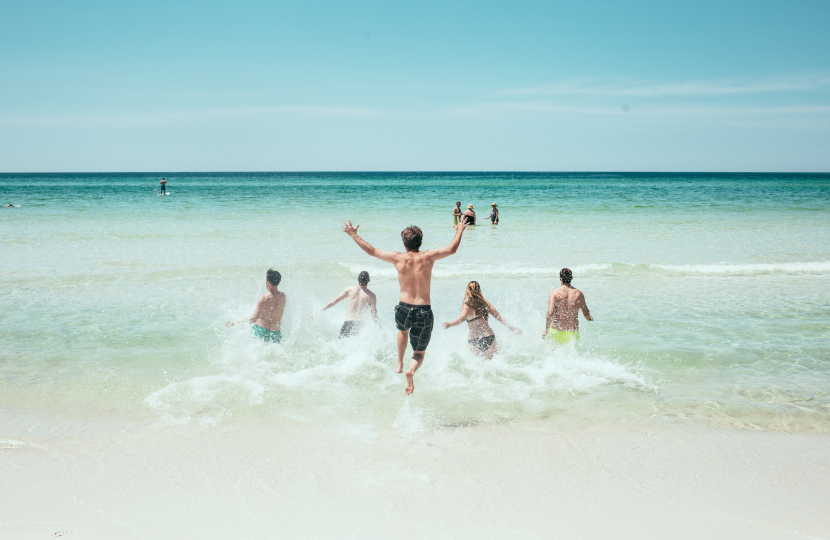
Say “Summer” in a word association game, and there’s a good chance the response you’ll get back is “holiday”. And looking back over Summer 2024, for many Herald and Post readers, alongside their enjoyment of our own beautiful area, one of the great memories will have been going away with the family.
For most of my career before I entered Parliament, I worked in some part of the hospitality, hotels and travel trade. It’s a business of course – in fact, one of the world’s biggest – but when you’re working in it, it feels like more than that.
Travel is about bringing people together – from family reunions to business leaders forging new alliances. It’s about discovering new places, people, experiences. It’s about unwinding, seeing the world differently (literally) and as a result being able yourself to think differently.
It’s a natural human inclination to want to see more of the world – if you can. As individual societies, and the world as a whole, get richer, one thing you can pretty much guarantee is that travel and tourism grow.
And that growth in turn helps societies get richer. Estimates vary, but at least 7% of all employment in the world is in tourism, and if you talk about all jobs connected to tourism, it’s over 10%. For some countries like Spain or Greece, or our nearest neighbour Ireland, it is higher again.
But the really striking thing is that around one in four newly-created jobs globally are connected to the sector. Tourism is fundamental to world economic growth – and in some developing countries even more so.
In multiple ways, I believe travel and tourism are a force for good in the world – for people’s enjoyment and well-being, and for people’s economic security and prospects.
So it is a matter of sadness to me that a news theme of Summer 2024 has been an anti-tourism backlash. Almost half of Majorca’s GDP is estimated to come from tourism, but that hasn’t stopped ‘tourists go home’ placards in its towns and on its beaches. And there have been protests elsewhere too.
Now, locals do have legitimate gripes – and this means public authorities must respond. Top of the list is accommodation, and there is a role for regulation so locals don’t get priced out. Secondary destinations can be promoted to spread the trade out more. I generally welcome moves to clamp down on anti-social behaviour from holiday-makers. Environmental responsibility needs to be encouraged. And if there is a feeling that day-shorers from cruise ships (into Venice for example) aren’t making a commensurate economic contribution, there are ways to address that, too.
But what we must not have is a general move against travel and tourism – that would be bad for the world.
Here at home, we have no such backlash. But we do have a great opportunity. We may not have the weather (last few weeks aside) but we do in Britain have cultural heritage to rival the very best in the world.
In East Hampshire, our area’s natural beauty attracts walkers and cyclists; and assets such as Jane Austen’s House and Gilbert White’s House are an important cultural draw.
The economic argument is clearly not on the same scale as in Majorca – but visitors are an important part of supporting our market towns, village businesses and pubs. I see the visitor economy as a key economic and employment opportunity for East Hampshire – and I would like more of those visits to include overnight stays.
The way we in Britain – both nationally and in different areas – organise our efforts to promote what we have to both domestic and international visitors certainly isn’t perfect – but that’s not a subject for today.
What I hope we can do, as this Summer draws to a close, is acknowledge and celebrate the good that can come from travel – and celebrate all that we have here at home.


